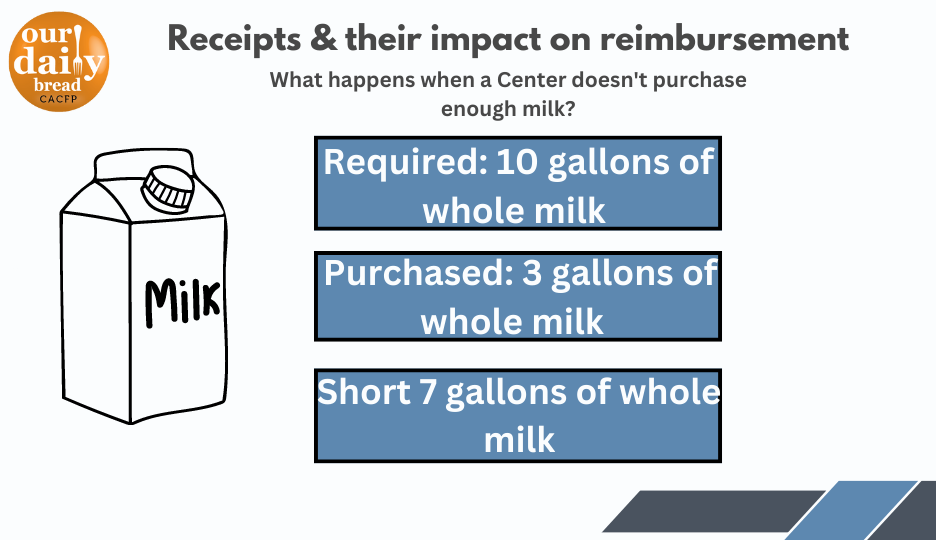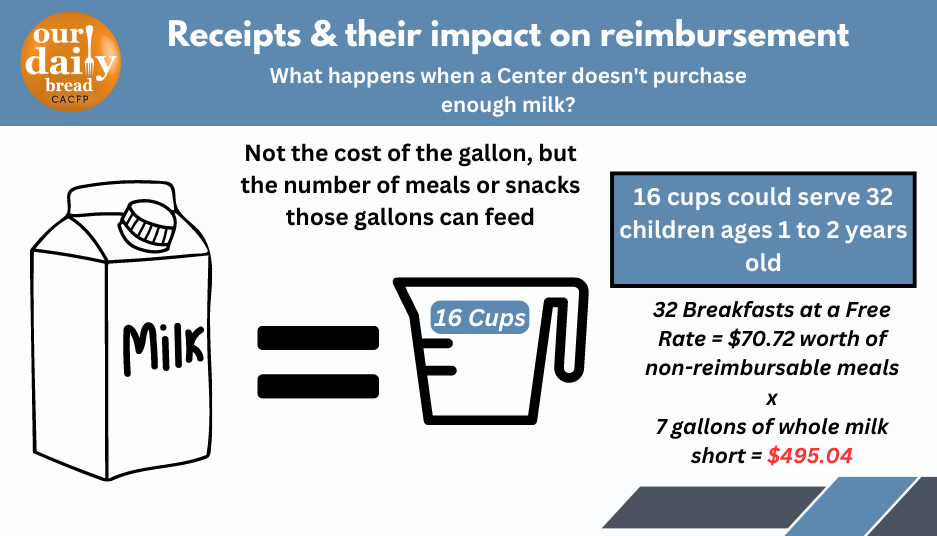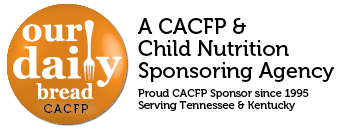How Your’re Losing Money by Not Buying Milk


Based on what’s in the system, a center is required to have 10 gallons of whole milk. But after processing all of the receipts to find out the total of milk purchased, it looks like the center only purchased 3 gallons of whole milk, which would put the center 7 gallons short. Being short 7 gallons may not seem like a but deal, considering each gallon costs around $4.00, but there is a much bigger cost that you’re missing…
One gallon of milk contains 16 cups. Those 16 cups could serve 32 children ages 1 to 2 years old. That is 32 breakfasts at a Free Rate which equals $70.72 worth of non-reimbursable meals. Now imagine being short 7 gallons of whole milk in this scenario. Not spending $28.00 on 7 gallons of milk is actually costing you $495.04. Wow!

To ensure that early educators are maximizing their reimbursements on the CACFP, it is important that they understand the milk requirements and purchase the correct amount of milk for each meal. Additionally, early educators should keep accurate records of the milk they serve to each child in order to document their compliance with the CACFP meal pattern requirements.
By purchasing the correct amount of milk and keeping accurate records, early educators can ensure that they are maximizing their reimbursements on the CACFP and providing high-quality, nutritious meals to the children in their care.
You must be logged in to post a comment.

